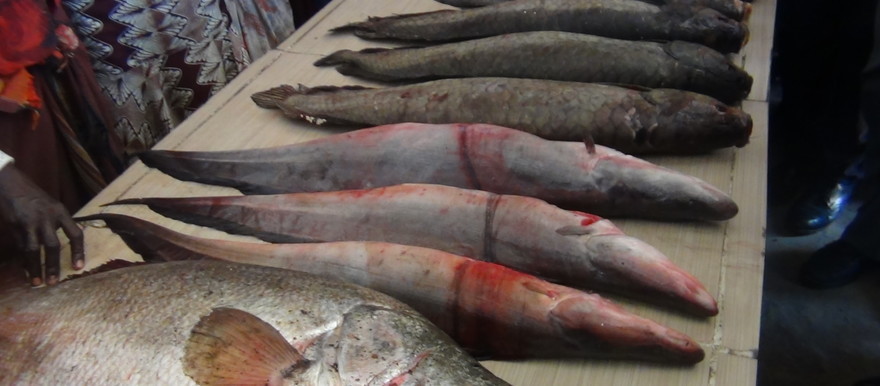Bor town, the capital of Jonglei State, has since July 2020 witnessed the worst floods for the first time in over 50 years which led to massive displacement and deaths but led to a flourishing fish business as supplies rise, several fish vendors and residents said.
While speaking to Radio Tamazuj in Bor, fishmongers admitted the rising floodwaters in parts of the state have contributed to high fish production, hence their business flourishing.
A middle-aged fishmonger who identified herself only as Adau, said: “I started this business two months ago. In Bor, there are lots of fish. We receive several boats full of fish from the northern parts of the town. We buy big quantities for resale before the boats proceed to Juba.”
However, Adau’s life has yet to improve as she recovers from the impact of the months-long flooding.
“We are still struggling to fix our lives back to normalcy after the floods. So, there is no big improvement on my side despite the business. For example, we pay a lot of money to get good fresh fish, but despite the challenge, I can feed my children,” she said.
Across fish markets in the town of Bor, the price of a sizable fish has dropped from 2,000 or more to 1,500 SSP.
Another fishmonger, Amol Deng, said she earns about 1,000 SSP daily and reserves the surplus fish for family consumption but that government intervention is needed for them to thrive.
“Here, we lack shelter. As you can see, we sell our fish by the roadside. Again, we cannot get enough fish for resale because we lack money. So, we need help,” Amol said.
Fishing is common among communities in Jonglei State and is often practiced to provide families food and income.
Jonglei lies in the Sudd, one of the largest freshwater ecosystems in the world, extending from Mangalla in Central Equatorial State to Sobat River in the Upper Nile region, and is home to large fish populations.
Mayen Paul, a fisherman in Duk, said this year has seen an explosion in fish population due to the floods.
“Floods have increased fish production in the areas of the (Jonglei) Canal. The number of fish increased this year with a big size. If you set your net at the right fish channel, you could get 40 fish. If you have more than two nets, then you will go for more than 100,” Mayen said.
The fisherman said his life is slowly improving despite the marker being flooded with cheap fish.
“Here everyone fishes for themselves. The supply is high but demand is low because no one buys. So fish has to be dried, or transported to Yuai, Bor, and Juba,” he said.
Mayen added, “Actually the issue of transport is a major problem for us here in Duk, especially in the Padiet area except for those fishermen in swampy areas accessible by boats.”
A Bor resident, Mabior Yuol, noted, “At a restaurant, one can get the whole fried fish at only 1,000 SSP. I think the reason is that we get a lot of fish supplies and also the US dollar is dropping.”
For his part, Ayuen Kur Ajok, the deputy Secretary-General for the Jonglei chamber of commerce and agriculture, admitted the fresh and dry fish business is booming, attributing it to last year’s flooding.
“Floodwaters have significantly reduced. Businesses are doing well, especially the fish business. Of course, water is life. That is why fish supplies are too much from areas of Baidit and Duk,” he noted.
On the challenges, the business official pointed out that they are engaging their partners so that setbacks to the flourishing fish business are addressed.




